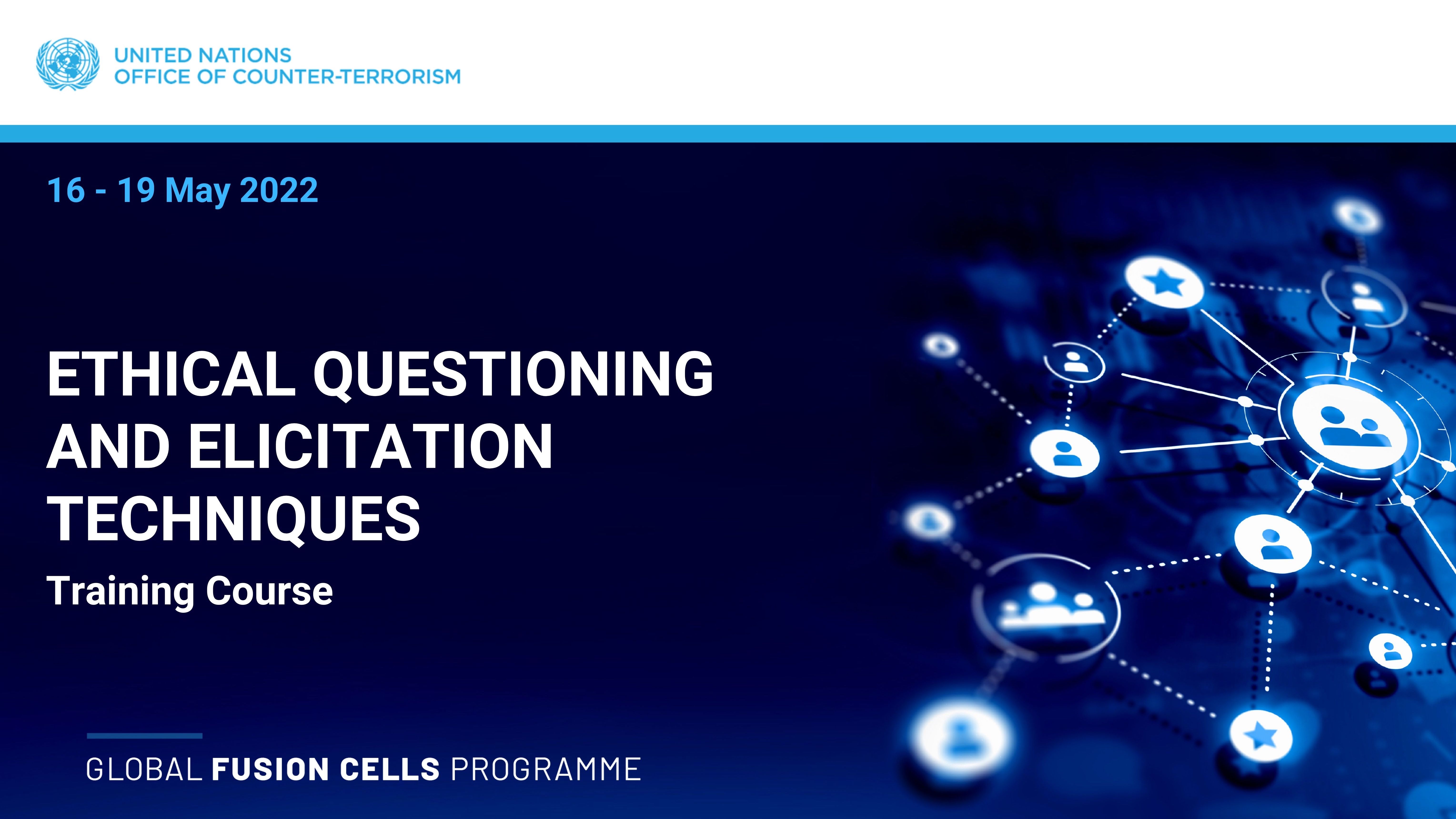Fusion Cells Ethical Questioning and Elicitation Techniques Course

From 16 to 19 May 2022, the United Nations Office of Counterterrorism (UNOCT) delivered its training course on Ethical Questioning and Elicitation Techniques to Member States’ representatives from beneficiary countries and their national security, counterterrorism and law enforcement agencies.
The course aimed to assist Member States in developing effective human rights compliant interviewing and questioning skills within their Counter-Terrorism investigative and arrest‐to‐trial processes, thereby increasing the reliability of the information elicited and enhancing transparency and public trust. The training provided core guidance on investigative interviewing and the techniques designed to encourage victims, witnesses, and suspects to provide complete, accurate and reliable accounts.
Furthermore, the course walked participants through how to conduct an investigative interview using the PEACE model, including how to plan and prepare for an interview as well as how to engage the interviewee throughout the process. Participants learned how to probe, challenge and elicit information from the interviewee, along with how to close the interview, provide feedback and evaluate their performance as the interviewer. The training highlighted the benefits of human rights compliant investigative interviewing to a fusion centre and drew on national models on how to conduct successful investigative interviews while respecting and preserving human rights.
The course corresponds with other UN guidance documents published and currently under development following the Strategic Guidance Framework for International Policing (SGF), particularly those relating to Criminal Intelligence and Intelligence-led Policing. It is the eighth course in the Global Fusion Cells Programme’s curriculum.
Background
The 3-year Global Fusion Cells Programme was launched in January 2020 and is co-funded by the United Nations Peace and Development Trust Fund (UNPDF) and the governments of Portugal and Qatar. UNOCT Special Projects Section implements the programme in cooperation with CTED, UNPOL, CAERT, and Interpol. Current programme beneficiaries include Ghana, Botswana, Uganda, Togo, Mozambique, the Democratic Republic of Congo, and the regional body SADC. The United Nations Office of Counterterrorism (UNOCT) Fusion Cells programme provides specialized technical assistance and expertise to help beneficiary countries develop legislative and institutional frameworks. In doing so, it supports robust, relevant, fit-for-purpose national-level interagency coordination mechanisms and “Fusion Cells/Centres” to address the threat of terrorism.
Such mechanisms strengthen intelligence and investigation that can help ensure appropriate preparedness and contribute to a more effective response to and recovery from terrorist attacks.

